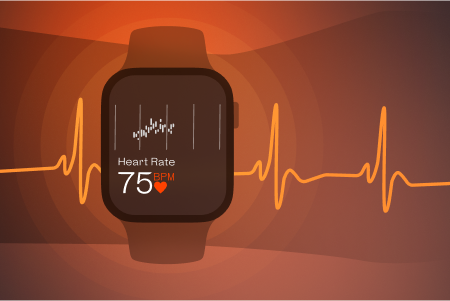
Measuring Resting Heart Rate
From manual pulse counts to the latest in app technology, dive into the transformative journey of heart rate monitoring
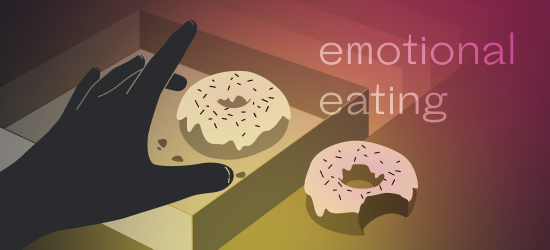
What to do to avoid overeating when you’re experiencing strong emotions, or if you do stress eat, how to do it better
Intense emotions like anxiety, anger, or sadness are painful and can be difficult to manage, and one of the easiest and most accessible ways to cope with these feelings is to eat something. According to Robert Sapolsky, professor of neuroendocrinology at Stanford, stress eating isn’t a conscious choice you make; rather, it’s an innate biological mechanism. When you experience stress, your body releases appetite-increasing hormones called glucocorticoids. Stress also increases your body’s insulin levels so that what you eat is deposited in your midsection as visceral fat, which has been linked to metabolic and cardiovascular disease. Stress eating isn’t a reliable source of relief, often leading to other negative feelings like guilt or shame.
The following expert-backed tips can help you find alternative coping mechanisms when you’re feeling stressed, as well as make better choices when you do stress eat.
Bounded rationality is a behavioral economics concept that helps explain why we’re often unsuccessful when trying to stop stress eating. The premise of bounded rationality is that because of its natural limitations, the brain will often choose a small but immediate reward over a reward that’s more substantial but delayed. For instance, when given the choice between getting $10 now, or $100 in a week, your brain will likely choose the immediate reward. This can also apply to stress eating, where you might choose the short-term reward of a cookie, over the less immediate reward of another coping mechanism, like journaling or meditating.
According to Kelly McGonigal, a professor at Stanford and best-selling author of “The Willpower Instinct,” one way to override your brain’s instinct is to put off the cookie for ten minutes. This will make your brain see the cookie as a “future reward,” which reduces the pressure from your reward system and makes it easier to resist the tempting treat.
When we think about food, we can often become inundated with sensory memories: the tastes, the smells, the colors! By introducing your brain to new stimulating experiences, you can interrupt this sensory memory parade. A few years ago, Australian researchers tested this theory using the video game Tetris. What they found was that even a three-minute Tetris session reduced subjects’ desire for food. Tetris is a magical appetite-reducing game, but it is a complex activity that can alter the course of your thoughts and interrupt an anxious thought spiral. Researchers have also found that pottery has a similar effect, filling your mind with imagery unrelated to food. Being exposed to Dynamic Visual Noise, a special sequence of blinking black and white squares (shown in this video), interferes with your ability to focus on food. Of all the distracting activities, physical movement has shown to be the best way of completing your stress cycle. For example, taking a fast walk may help you beat chocolate cravings.
When you down cocktails faster than your liver can metabolize, the concentration of alcohol in your blood rises, and you get drunk. The more alcohol you consumed, the harder it is for the liver to process it. Eventually, this waste buildups up in your body and leads to liver diseases such as steatosis (know as fatty liver), alcoholic hepatitis, and cirrhosis. As many as 47.9% of mortality cases due to liver diseases are alcohol-related.
When you stress eat, the food you crave tends to be the unhealthy kind, like chips or chocolate. The irony of this is that these foods increase your anxiety even further, and the stress causes you to crave food even more. Eating these foods may also reduce your ability to handle future stress. When stress eating, try to select food that will satisfy your hunger quickly and for a long time, lift up your spirits, or at least takes a long time to chew. For instance:
Drastic “all or nothing” measures, like going cold turkey can increase your anxiety and appetite and make you crave precisely the foods you’re trying to avoid. Dietician Lisa Yang recommends the 80/20 rule instead. In 80/20 eating, 80% of your daily food intake should come from nutritious food and 20% from foods and drinks with low nutrient value like chips, chocolate, or wine.
If we think we’re just having a snack, instead of sitting down for a full meal, we tend to eat more than we realize. This is also true with foods that come in small and single-serve packaging, which can interfere with our ability to judge how hungry we are and why it’s better to avoid them. When you can’t count the number of the (deceptively small) packages you’ve consumed, your brain will be retrained to look inwards for signs of satiation. This will make it likelier that you eat the amount of chips or candy that your body actually desires, not the amount being dictated by your emotions.
The most common time for stress eating is the evening, when you’re often tired, having accumulated a full day’s stress and drained your willpower reserves. To lower your chances of stress eating to cope, prepare for your evening earlier: prep a healthy dinner, plan what you want to do and with whom. Having a plan makes it likelier that you’ll avoid falling into your usual routine. If your evening plans get disrupted for some reason, you can reduce how much you eat by using a handy technique called security priming. Try to think about the people in your life who make you feel safe, stable, or calm. These feelings will, in turn, help bring down your anxiety and hunger levels.
It’s common to use food to cope with stressful thoughts and emotions. Though it’s hard work, accepting your feelings can improve your ability to cope with tough emotions and helps regulate stress-induced cravings. One way to start working on acceptance is to set aside 5-15 minutes a day and allow yourself to feel whatever comes up to its fullest. Research suggests that accepting your emotions can lead to better mental health, as well as experience fewer negative emotions in future stressful situations.
Welltory Team, 26 Sept. 2022

From manual pulse counts to the latest in app technology, dive into the transformative journey of heart rate monitoring
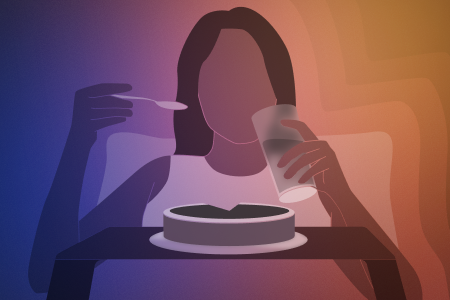
Discover the intricate relationship between late-night eating and its impact on sleep duration and quality
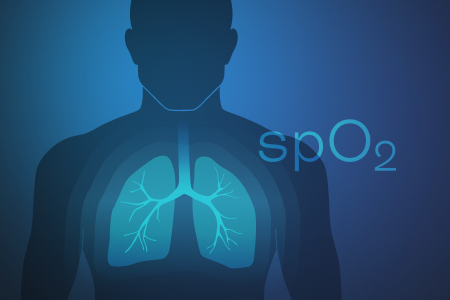
From boosting cognitive function to enhancing physical performance, discover the impact of blood oxygen levels on various aspects of health

The relationship between stress and productivity and how Welltory can help you plan better
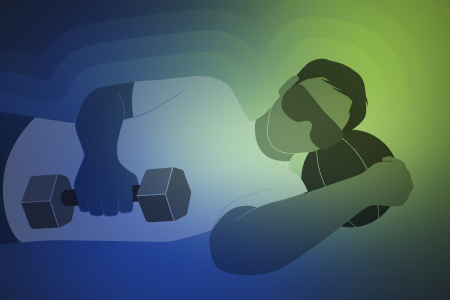
Does sleeping burn any calories, should you exercise right before bed and how much do you need to sleep to burn a 1000 Cal
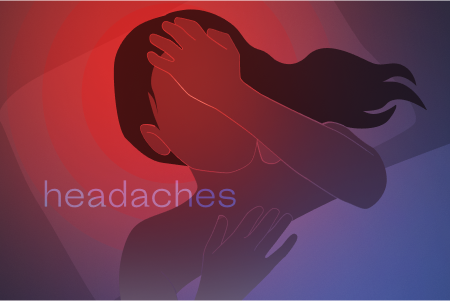
All you needed to know about headaches at night – types of nighttime headaches, their causes, possible treatment and how to avoid them.
 App Store
App Store
 Google Play
Google Play
 Huawei AppGallery
Huawei AppGallery
 Galaxy Store
Galaxy Store







